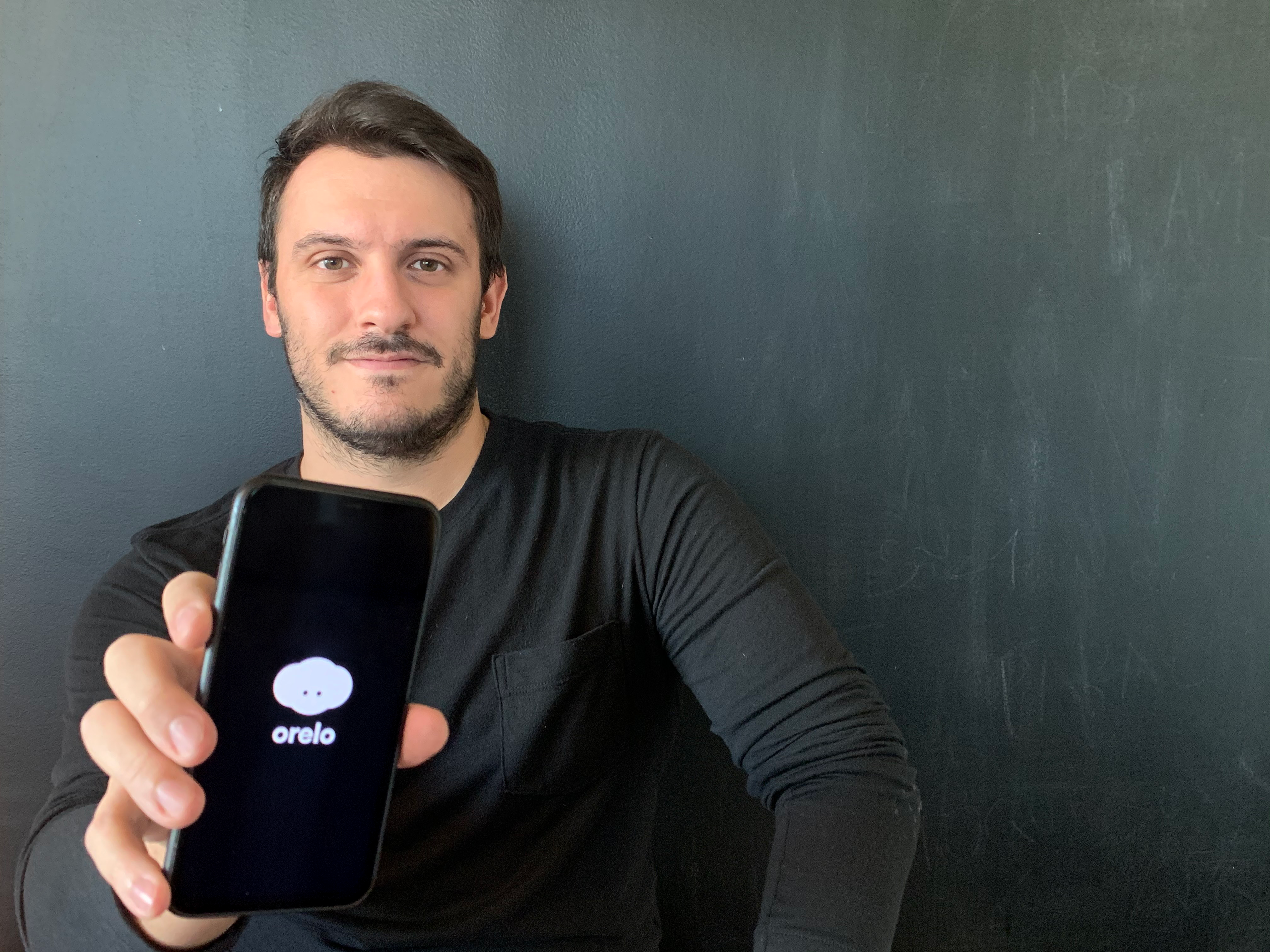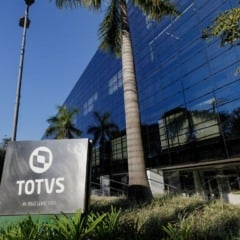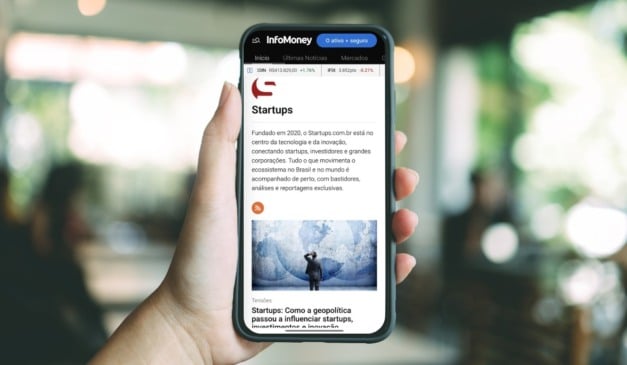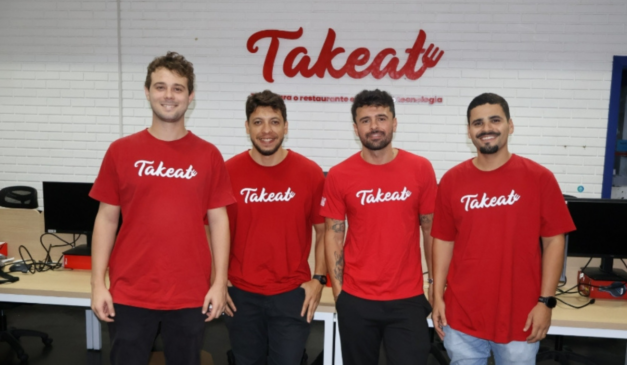
Placing its bets on the growing market of content creators in Brazil, Orelo is evolving. Born with the purpose of empowering creators by helping them make money with their work, the startup is developing a platform to meet the needs of sector professionals. To boost that plan, the firm is eyeing a new round and potential acquisitions later this year.
Founded in July 2020, Orelo is led by Luiz Felipe Marques, a journalist who in recent years had been working as a marketer for large Brazilian companies. More recently, he was part of founding team at mobility startup Yellow, which later became Grow Mobility after a merger with electric scooter firm Grin. Equipped with the lessons learned from the late mobility company, especially in the product area, the now-entrepreneur sought to address problems related to his professional skillset.
“I thought about my journey in the world of journalism, culture and art, and what I wanted to do next. During that process, my first insight was about how difficult it is for a content producer to earn money – even more so in the case of independent creators”, says Marques, in an interview with Startups. “Orelo aims to contribute to a change in the current scenario of independent content production in Brazil.”
Orelo started its operations by addressing the needs of creators in the podcast market, with a monetization model based on subscriptions to the service. Since the end of last year, the company has expanded its scope, by offering services to content creators active in other types of media.
“We started to look at the reality of podcast producers, which was the media that grew the most in terms of consumption and it was also where producers faced more issues [around monetization]. For each tool that we launched, the effect on the content production chain was immediate: we were able to bring a lot of value to our customers in a very short time”, he says.
Through its podcast aggregator operation, Orelo now has a catalog of over 1 million titles, including original content. In addition, the startup has more than 2,000 registered creators, producing content in formats other than audio, such as text and even workshops.
The platform include content creators that includes household names of Brazilian journalism, such as Xico Sá, Marina Person and afrofuturist author Ale Santos, as well as shows such as the Petit Journal podcast, which focuses on international economics and politics, and basketball-focused podcast Café Belgrado.
How Orelo is refining its stratregy
According to Luiz, Orelo‘s strategy falls in line with the realization that creator fans don’t want to only consume podcasts. “Most of them also want a newsletter and to talk between themselves, ask questions, interact more with creators. By observing those movements, the creatives themselves started asking us for more resources”, he said.
The platform was then boosted with various features, including newsletters and the ability for creators to launch their enhanced campaigns, as well as forums. With the evolution of the model, growth of transactions on the platform (which more than doubled in the first months of 2022) and the creator monetization gains, Orelo made an important business change. Since last year, the firm started charging creators a 9% fee on the revenue generated through the site.

Over the coming months, the startup plans the launch of video features – for both hosting as well as live broadcasting – in addition to improvements on other fronts such as the sale of physical and digital products. Also, the company is eyeing potential acquisitions, targeting niches that aid platform development, as well as market consolidation.
Orelo‘s plan of being a one-stop-shop for content creators to cash in on their audiences will be supported by the company’s first institutional round. The startup already raised 5.5 million Brazilian reais ($1,1 million) in an angel-led investment round. The pool of investors includes Pedro Tourinho, manager of artists such as popstar Anitta; Renato Mendes, co-founder of multifamily office Oikos; and Ariel Lambrecht, founder of Brazil’s first unicorn, mobility firm 99 as well as Yellow, who is currently developing Mara, a new marketplace. The startup now plans to raise about $10 million in a new funding within the next six months.
“Creator culture is an emerging field, so we wanted to prove our thesis, set up our team and captable with people who can contribute to our financial performance. But we are rapidly reaching relevant numbers: we wanted to have at least a 40% monthly growth rate and now we are hitting that mark easily”, Marques says.
Despite being a novelty of sorts, the creator economy space is growing, which should contribute to attract the attention of funds. According to estimates from funds specialized on creators and passion economy, such as Atelier and Variant, the segment is worth approximately $100 billion, and Brazil represents about 20% of this total.
The volume transacted by these creators is also noteworthy: payments fintech Stripe claims to have transacted more than $10 billion in this market alone around the world, and points to a growth of 170% per year in Brazil. “Nobody doubts that [the creators economy] is the next big thing. What is missing is a player that concentrates the offer, and leads the discourse”, Marques points out.
As Orelo‘s value proposition evolves, one advantage is that it no longer has to explain o funds about a potential overlap with Spotify, the CEO says. “Before, we always had to say that we don’t compete with Spotify, which brings an audience of hundreds of thousands to its platform, but doesn’t pay content producers. We want to be really good for creators: enabling monetization for them is what sets us apart.”
Betting on the value of true fans
Creating and maintaining a successful podcast is no simple task. Creators need about seven different services to get the show on the air, such as a content hosting service and a distribution channel, also known as aggregators. In addition, a crowdfunding campaign is also needed in order to maintain the project, as well as a newsletter platform. A Brazilian content creator can spend up to $300 a month on all these services, according to Marques.
“In addition of adding a significant cost [to the production cost of a podcast] these multiple platforms mean a lot of extra work for the creator. This is the challenge we are trying to address, as there are hundreds of tools around, each covering of a part of the chain”, says the executve. He adds that professionals also face all sorts of problems, such as managing supporter data sheets, and preventing leaks of subscriber’s access data to exclusive episodes.
Issues relating to monetization and managing day-to-day tasks around their activity online are not exclusive to podcasters, Marques notes, adding he had the intention of attracting other types of content producers since Orelo was founded. “From our daily conversations with creators, we received many requests for engagement and monetization tools, and we saw that things in Brazil are not so streamlined”.
“In most projects, the producer has a podcast, which is the core product, and also a newsletter, a WhatsApp group and sometimes also does a bit of merchandising, mentions the names of supporters in the program and so on. This creator needs to give a lot of things to their audiences to keep them engaged and that’s when we saw that the [addressable market] was much larger, both in terms of other media formats, and audience engagement tools”, he says.
Despite the challenges of this industry, content creators are now realizing that it is possible to make a living from the internet. Citing a theory by Kevin Kelly, former editor of Wired magazine, now digital economy guru – that not everyone needs to write a bestseller, but can live as an artist if they have at least 1,000 true fans – Marques points out that Brazilian creators are thriving in specific niches, such as true crime, and earning around 10,000 Brazilian reais ($2,000) per month.
“The possibilities offered by the internet mean that you don’t necessarily have to be in the mainstream and seek out a huge audience to be relevant. Today, with 1,000 people contributing 10 Brazilian reais ($2) per month, it is possible to earn a reasonable amount of money without having to reach stardom status or seek sponsorship from brands that still want audiences in the millions”, Marques says.
According to the executive, brands are also changing their views when it comes to the value of niche creators. “Media departments are very focused on how much impact they will have [by investing in a relatively small content producer]. There is a change in progress, but also a path ahead in this sense”, he adds.
As Orelo shifts paradigms, especially among creators, Marques predicts that the creators economy will gain additional momentum in Brazil and in Latin countries this year – the company also plans to expand internationally to serve creators from other regional markets.
“Latin America is the continent that ranks higher in the world in terms of time spent online and on social networks, and it loves influencers and creators, which creates enormous opportunities”, he says. But there is still work to be done to convince professionals to monetize their skills.
“We are working to change creators’ habits so they can stop trying to seek out giant audiences and advertising contracts that will take years to come – and may never happen – and consider the major power they already have, which is their audience”, he concludes.
(Translation by Leandro Miguel Souza, editing by Angelica Mari)







